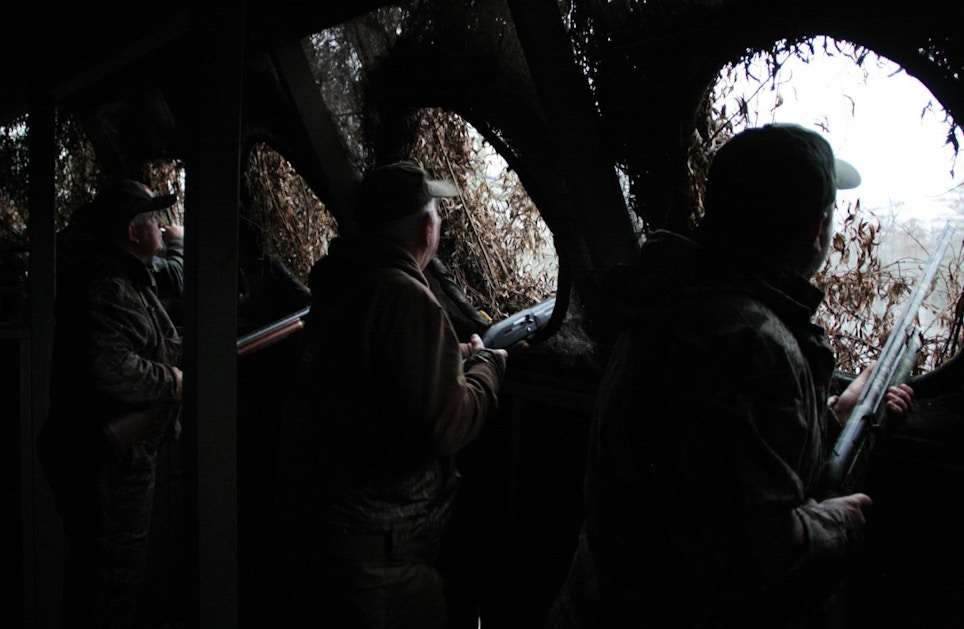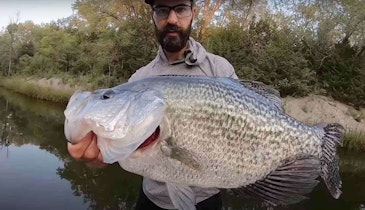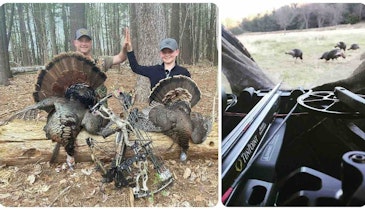Waterfowl season is a time of mud and laughs, misses and lies, hot coffee in a blind and cold shivers when icy rain dribbles down your neck.
It's also a season of "Dang, I forgot my ..." in the truck, blind or swamp. Forgetting the coffee or snacks is one thing. Forgetting to put the plug in your shotgun after a good cleaning or something else in your blind bag?
C'mon, man. You can avoid that with some pre-season prep. Here are some helpful tips.
Clean Your Blind Bag
If you threw your bag in the corner of the garage or mud room seven months ago, it's time to take it outside and give it a shake.
Check all the pockets for stuff you don't need. Throw away the black gob of whatever-that-is in the plastic bag (it was a sandwich). Make sure you don't have any lead ammo in there, if you use the bag for other game. If the straps are torn or worn, replace them or possibly get a new bag. Getting rid of Ol' Trusty might be tough but at some point, you have to do it.
Add your stuff for the season. I usually have a gallon resealable bag that includes baby wipes (multiple uses), a bottle or two of saline solution, big and small Band-Aids, duct tape, black electrical tape, matches or a Bic lighter, a small SureFire light, some carabiners and zip-ties and a few extra smaller bags in case I need them for licenses or stamps. This possibles bag ebbs and flows as the season progresses.
Check Your Waders
My early duck-hunting days involved non-insulated rubber-coated waders. Things are much better now, thankfully.
Waders can leak. That's a given. Spare yourself the opening day indignity of having a wet crotch due to a faulty seam or chilly, wet feet by checking your waders now. Look at all the seams and any past repairs you've made. Check around the top of the boots where the fabric is sewn to it. Check the boots.
My go-to method is to fill the waders with water and see if anything's leaking. If not, I drain and hang to let them dry. If something's leaking, I repair it.
Practice Calling
Most waterfowl hunters I know either call year-round just because they enjoy it or they're always looking for something else. Another sound, another hen tikka-tikka, a whistle or whine. Something.
If nothing else, practice your calling to make sure your calls sound good and are ready to go. Check the guts, clean out any gunk, make sure your lanyards and knots are good. You don't want to get to the blind or tree in the swamp and discover a missing call due to a knot failure.
Double-Check Licenses, Stamps
This should be second nature as part of your hunting ritual.
Make sure you have all of your licenses, permits, state hunting land permits and permissions, state and/or federal stamps, free Hunter Information Permit (HIP), and any written landowner permission in hand before opening morning.
If you're traveling to another state, make sure you know their regulations. I once hunted out of state and found out later that I didn't have a state stamp. I felt like crap. Plus, it was illegal.
Avoid any problems by making sure. Get everything in hand now or go online to buy licenses, permits and stamps.
Buy Ammo Now
If you don't have ammunition stocked up for the season, buy it now because the ongoing shortage isn't just for centerfire and rimfire cartridges.
The problem for manufacturers is obtaining materials. They simply cannot get metal, plastic, primers and other items to maintain the demand. It's a combination of things but suffice to say, it won't end soon and the problem isn't magically going to disappear after the November election.
If you're accustomed to shooting No. 4 but only can find No. 6, you better buy it and pattern your gun again. If you can't find ammo and have to stretch your supply, call better in the blind and shoot more accurately. Otherwise you'll be out of ammo and won't have any ducks or geese, either.
Traveling Out of State
I'd never thought of this but for hunters who travel out of state and take their boats, you should make sure of the state's laws on cleaning boats, motors and gear to help prevent spreading invasive species.
The Nebraska Game and Parks Commission sent a reminder for hunters to clean their boats and gear to help curtail the spread of Zebra mussels, Eurasian watermilfoil, curly-leaf pondweed, New Zealand mudsnails and other aquatic invasive species. These can “hitchhike” on hunting gear and be spread by droplets of water or tiny plant fragments.
“By taking a few minutes to clean, drain and dry their gear, waterfowl hunters can ensure their favorite hunting spots remain preserved for the present and future,” said Kristopher Stahr, Game and Parks’ aquatic invasive species program manager. “By all of us doing our part, we can prevent the spread of aquatic invasive species and protect our state’s waters.”
In Nebraska, Game and Parks regulations requireanglers, hunters and boaters conduct "clean, drain and dry procedures" after leaving a water body and prior to entering another. Hunters should remove any visible plants or mud from their gear and ensure all water is drained before leaving their hunting site. They also should clean their gear with high pressure or hot water and let it dry for at least five days before reusing.
That's a good idea for any hunters trailering boats or who wade through swamps. Clean up and don't spread invasive boogers to other areas.






